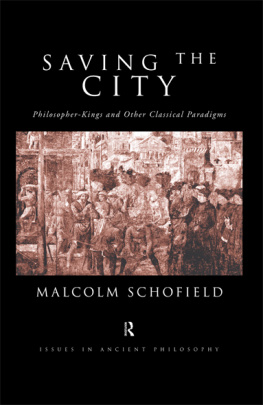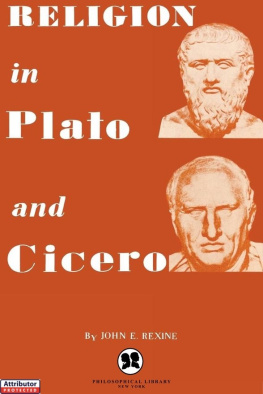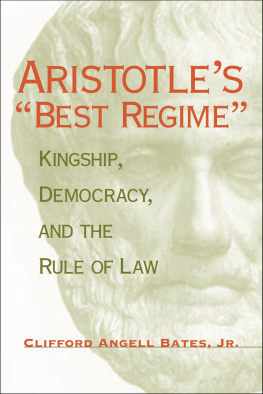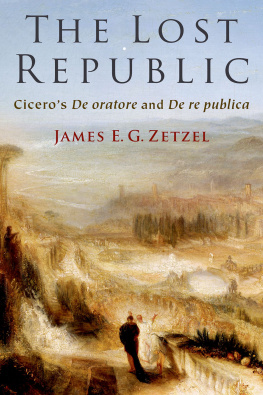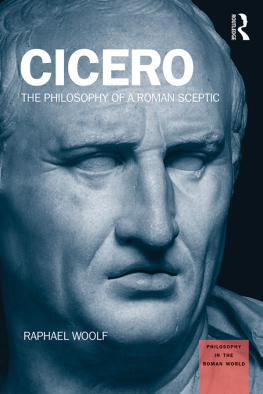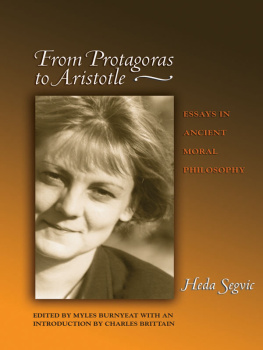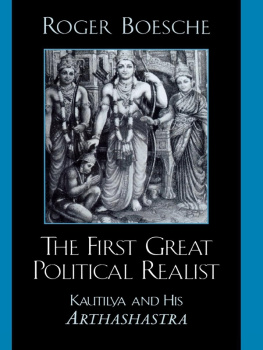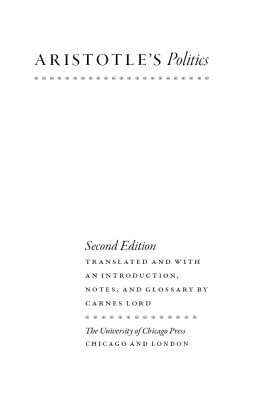First published 1999
by Routledge
2 Park Squre,Milton park,Abingdon,Oxon,OX14 4RN
Simultaneously published in the USA and Canada
by Routledge
270 Madison Ave, New york NY 10016
This edition published in the Taylor & Francis e-Library, 2005.
To purchase your own copy of this or any of Taylor & Francis or Routledges collection of thousands of eBooks please go to www.eBookstore.tandf.co.uk.
Malcolm Schofield 1999
The right of Malcolm Schofield to be identified as the Author of this Work has been asserted by him in accordance with the Copyright, Designs and Patents Act 1988
All rights reserved. No part of this book may be reprinred or reproduced or utilized in any form or by any electronic, mechanical, or other means, now known or hereafter invented, including photocopying and recording, or in any information storage or retrieval system, without permission in writing from the publishers.
British Library Cataloguing in Publication Data
A catalogue record for this book is available from the British Library
Library of Congress Cataloging in Publication Data
Schofield, Malcolm.
Saving the city: philosopher-kings and other classical paradigms/
Malcolm Schofield.
p. cm.(Issues in ancient philosophy)
Includes bibliographical references and indexes.
1. Political scienceGreece. 2. Political scienceRome. 3. Law, Greek.4. Roman law. 5. Civilisation, Ancient.
I. Title, II. Series
JC51.S36 1999
320.01dc21 9826068
CIP
ISBN 0-203-20181-7 Master e-book ISBN
ISBN13: 978-0-203-20181-7 Master e-book ISBN
ISBN13: 978-1-134-66797-0 ePub ISBN
ISBN 0 415 18467 3
Publisher's Note
The publisher has gone to great lengths to ensure the quality of this reprint but point out that some inperfections in the original may be apparent
PREFACE
In telling the various stories which make up this book I have been helped, stimulated and encouraged by a huge number of friends and colleagues. Some of what I owe to some of them is indicated as its arguments unfold. But I count myself exceptionally fortunate in having been a member of the Faculty of Classics at Cambridge for the last twenty-five years or so, and of the various scholarly communities I have become part of mostly in consequence of that. The book has interdisciplinary aspirations, and if it fulfils any of them that is mainly due to the intellectual environment fostered by the Faculty. Despite wonderful facilities in Faculty, College and University, I always seem to end up doing the writing at home: once again I thank Liz for putting up with the mess and the territorial expansionand for everything else. To the dedicatee I owe inter alia arguments about the title (subsequently continued with Richard Stoneman) and an unexpected holiday, just as the book was receiving its finishing touches.
MS
May 1998
PUBLICATION DETAILS
1 Classical Quarterly 1986; reprinted by permission of Oxford University Press
2 Proceedings of the Boston Area Colloquium in Ancient Philosophy vol. 13; Brill 1998
3 Palis 1998 (first part only); reprinted by permission of Imprint Academic
4 The Ancient Greek City-State, ed. Mogens Herman Hansen 1993; reprinted by permission of Mogens Herman Hansen
5 Kosmos, ed. P.A.Cartledge, P.C.Millett, and S.von Reden 1998; reprinted by permission of Cambridge University Press
6 not previously published
7 Aristoteles Politik, ed. G.Patzig 1990; reprinted by permission of Vandenhoeck & Ruprecht
8 Review of Metaphysics vol. 49, no. 4 (June 1996); reprinted by permission of The Review of Metaphysics
9 not previously published
10 Cicero the Philosopher, ed. J.G.F.Powell 1995; reprinted by permission of Oxford University Press
For the present volume a few small revisions or additions have been made in chapters now has a second appendix.
INTRODUCTION
Homers Iliad begins with the leadership of the Greek army before Troy preparing to tear itself apart. Shakespeares Julius Caesar shows us the aristocracy of the late Roman Republic playing out the final act of a drama of self-inflicted disintegration. Stasisfaction and consequent civil conflictwas endemic in the ancient Greek city-state. Livys history might lead one to a similar conclusion about republican Rome. It is therefore no wonder that Greek and Roman political theory is above all else the search for a remedy for the malaise of stasis. Like the great Athenian statesman Solon before them, the philosophers want to save the city from itself, and to create or identify a basis for harmony which will preserve it in unity.
This book engages with some of the major questions the Greeks and Romans debated in attempting to carry out their project: What makes someone a good statesman? How are political communities cemented together? How are they to be founded in justice? And the book tackles its subject diachronically. It starts with Homer and ends with Cicero. In between come a number of studies of Plato, Aristotle and the Stoics. The Greeks were drawn to the idea that society could best solve its problems by relying on the wisdom of a good king. Chapters 10 turn to justice, and focus on an issue exciting current debate: Is there a dominant preoccupation with rights in ancient social and political thought?
Saving the City is a problem-oriented book. All the chapters were first delivered as talksessentially problem-posing/solving talksto seminars or colloquia, and reflect the diversity of their origins. The book offers fresh resolutions of disputed issues in well-known texts such as the Iliad and the Politics of Aristotle, and new explorations of some less familiar material, notably Aristotles Eudemian Ethics, Stoic political theory and Ciceros Republic. But the puzzles I take up are all in one way or another puzzles about the ancient conception of the good society.
Saving the City is also unified by a common worry: How far do the Greeks and Romans deal with the same issues or inhabit the same thought-world as us? How far are they irredeemably other? This worry has a number of sources, not least reflection on the work of Quentin Skinner and others associated with him in the Cambridge school of history of early modern political thought, on the one hand, and absorption of an approach to cultural history of the ancient world which has for some time prevailed among many classicists, on the other. It generates an explicit engagement with questions of methodology which runs through much of the book. Several chapters are concerned with the problem of using categories at home within the modern conceptual framework of social and political thought to interpret ancient texts or theories: e.g. 10 (rights).

